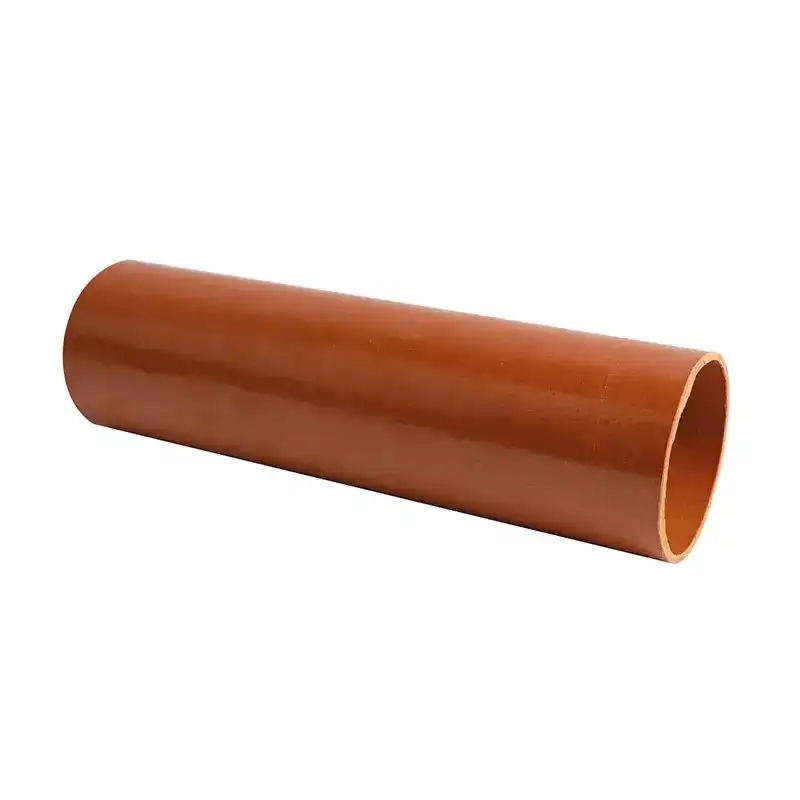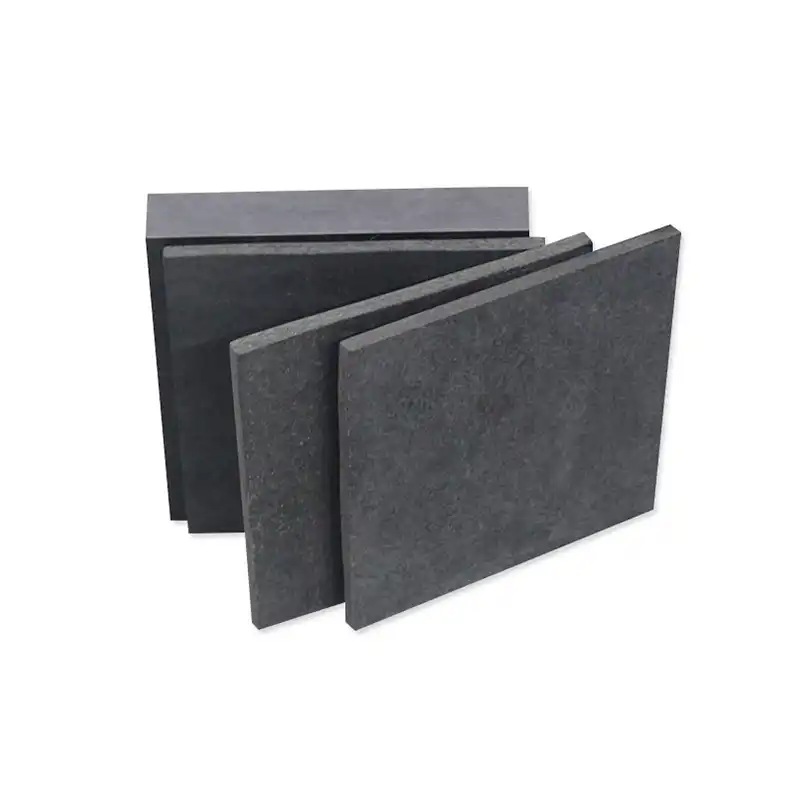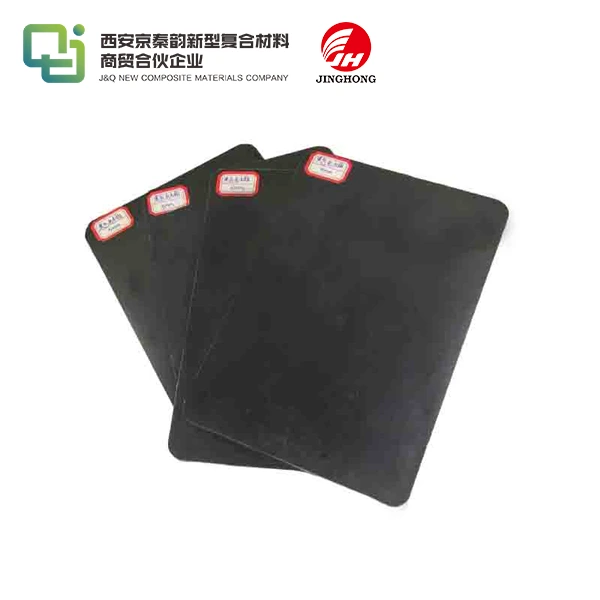How does a Flame Resistance FR4 Fiber Glass Laminate Sheet perform in high-voltage applications?
2024-06-14 11:43:32
As an electrical engineer specializing in high-voltage applications, I have often encountered the necessity for robust materials capable of withstanding extreme conditions. In such environments, the performance of insulating materials becomes paramount, particularly in ensuring safety and reliability. One material that has garnered attention in this realm is the Flame Resistance FR4 Fiber Glass Laminate Sheet. In this comprehensive article, we delve into the intricacies of how these sheets perform in high-voltage applications.
Understanding the Composition of FR4 Fiber Glass Laminate Sheets
Flame Resistance FR4 Fiber Glass Laminate Sheets are composed of a substrate material made from woven fiberglass cloth impregnated with an epoxy resin binder. This combination results in a sturdy and durable material that exhibits excellent electrical insulation properties. The term "FR4" refers to the grade of the material, indicating its Flame Retardant properties, which are crucial for applications where fire safety is a concern.
The fiberglass cloth used in FR4 sheets serves as a reinforcement, providing the material with its high mechanical strength and dimensional stability. This woven fabric is made up of tiny fibers that are arranged in a pattern to maximize their reinforcing effect. The fiberglass cloth is then coated or "impregnated" with an epoxy resin, which acts as the matrix that binds the fibers together. The curing process, typically involving heat and pressure, results in a rigid sheet that maintains its shape and integrity even under extreme conditions.
The epoxy resin in FR4 not only provides adhesion to the fiberglass cloth but also contributes to the material's chemical resistance and thermal stability. Epoxy resins are known for their strong bonding capabilities and their ability to withstand a wide range of chemicals and temperatures. This makes Flame Resistance FR4 Fiber Glass Laminate Sheets suitable for use in environments where exposure to corrosive substances or fluctuations in temperature are common. Additionally, the flame-retardant properties of FR4 are largely due to the epoxy resin, which contains additives that help to suppress flames and prevent the spread of fire.
In summary, the composition of FR4 fiber glass laminate sheets, combining woven fiberglass cloth with an epoxy resin binder, results in a material that offers superior electrical insulation, mechanical strength, chemical resistance, and flame retardancy. These characteristics make FR4 sheets an ideal choice for applications in electronics manufacturing, electrical equipment, and chemical processing, where reliability and safety are paramount.

Assessing Flame Resistance in FR4 Materials for High-Voltage Environments
Flame resistance is a critical factor in high-voltage applications, where the risk of electrical fires can have catastrophic consequences. FR4 Fiber Glass Laminate Sheets are designed to withstand high temperatures and inhibit the spread of flames, making them suitable for use in environments where fire safety is a primary concern. This inherent flame resistance is achieved through the use of flame-retardant additives in the epoxy resin matrix, which act to suppress combustion and limit the spread of flames.
Mechanical Strength and Durability in High-Voltage Settings
In addition to their flame resistance, FR4 Fiber Glass Laminate Sheets exhibit impressive mechanical strength and durability, making them well-suited for high-voltage applications. The woven fiberglass substrate provides excellent tensile strength, while the epoxy resin binder ensures dimensional stability and resistance to deformation under load. These properties are essential for maintaining the integrity of electrical insulation systems in challenging operating conditions.
Thermal Performance of FR4 Laminate Sheets in High-Voltage Applications
Thermal management is another critical aspect of high-voltage applications, as excessive heat can compromise the performance and reliability of electrical components. Flame Resistance FR4 Fiber Glass Laminate Sheets possess excellent thermal insulation properties, allowing them to dissipate heat effectively and maintain stable operating temperatures. This capability is essential for preventing overheating and thermal breakdown in electrical systems operating at high voltages.
Comparing FR4 with Other Materials for High-Voltage Insulation
When considering materials for high-voltage insulation, it's essential to evaluate the performance characteristics of various options. While FR4 Fiber Glass Laminate Sheets offer many advantages, including flame resistance, mechanical strength, and thermal performance, they are not the only choice available. Other materials, such as ceramics and certain polymers, may also exhibit suitable properties for high-voltage insulation applications. However, each material has its unique strengths and limitations, and the choice ultimately depends on the specific requirements of the application.
In conclusion, Flame Resistance FR4 Fiber Glass Laminate Sheets are a versatile and reliable choice for high-voltage applications, offering a combination of flame resistance, mechanical strength, and thermal performance. Their ability to withstand extreme conditions makes them invaluable in ensuring the safety and reliability of electrical systems operating at high voltages.
Contact us:
For professional manufacturing of Flame Resistance FR4 Fiber Glass Laminate Sheets, contact our GMP factory today. With a large inventory, complete certificates, and support for OEM customization, we guarantee fast delivery and tight packaging to meet your specific requirements. Reach out to us at info@jhd-material.com to learn more and start a collaboration.
References:
1. "Flame Retardant FR4 Epoxy Glass Laminate Sheets" - Isola Group
2. "Thermal Conductivity and Flame Retardant Characteristics of Epoxy/Graphite Composites for Thermal Management Applications" - ACS Publications
3. "High Voltage Insulation Materials: A Comprehensive Review" - IEEE Xplore
4. "Electrical and Mechanical Properties of FR-4 Composite Materials Used in Printed Circuit Boards" - MDPI







